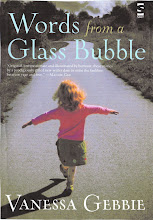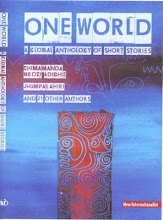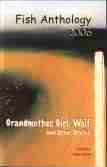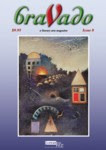Mr Willesden Herald Has Spoken, ...
Stephen Moran has written a long article on writing for literary competitions.
It is a comprehensive list of reasons why stories do not make it. Please read it, and if you are in any way serious about writing literary fiction, copy and keep it.
It’s worth reading a few of the comments on THE WILLESDEN HERALD POST HERE, from editors of good literary magazines, agreeing with the list, saying they see these all too often. (and we are talking top ranking places here).
Heavily précised, these are the ways entries fell down: (My entry would have been discarded as 14, among others…!)
.
1) NOT FOLLOWING THE RULES. Putting the name of the writer on the work, for example. Those would not even have been read. Straight into the bin.
2) OVERCROWDING THE CART. A short story can hold only so many characters.
3) POOR CHARACTER DIFFERENTIATION.
4) SOLIPSISM. UNRELENTING MONOTONY.
5) WELL ENOUGH WRITTEN BUT...SO WHAT? “The uncongenial protagonist or narrator, arrogant, cruel-minded, usually petty, often attempting gross-out effects, and usually going round in ever-diminishing circles before vanishing in a puff of studied triviality…”
6) POOR ENDINGS: Story peters out, or story rambles on past the natural finishing point.
7) POOR OPENINGS. The ‘Throat-clearers’, where the story actually started way down the text.
8) BORING, UNNECESSARY DETAIL. Stephen says, ‘We have lives of our own. We don’t need to substitute somebody else’s dreary domestic arrangements in our minds for our own..’
9) BANALITY. “Life can be banal, but we turn to fiction to find transcendence.”
10) MUSH and FAIRYTALES. To translate: Womaggery and elves.
11) FAILED EXPERIMENT: “It’s fine …to try an experimental format, but it’s not an excuse for slightness, skimpiness, overwriting, repetitiveness, underwriting, forced or boring content…”
12) UNCONVINCING. THIN. “This is fake, phoney baloney, unbelievable but presented as supposedly realistic. Often forced and plot-driven.”
13) WEAK PREMISE: “The triviality of some themes submitted is hard to believe. When you get a story that is 30 pages all about a minor ailment that has no apparent effects or significance, what are you to make of it? The writer is talking to himself…”
14) NOT A SHORT STORY. Essays, mini novels.
15) LITTERED WITH TYPOS, OTHER ERRORS
16) PANDERING TO THE JUDGES, Sending them copycatted stories.
17) POOR DIALOGUE. Tags. Undifferentiated voices.
18) UNEVENNESS IN TONE
19) SUMMATION. TELLING NOT SHOWING. “All sense of immediacy is lost.”
20) OVERWRITING. Purple prose etc
21) UNDERWRITING. Skimped, rushed.
22) GENRE WORK. 22. “Unicorns and elves, chick lit, police procedurals and bodice rippers. These should only be submitted to specialist competitions for their specific genres. The Willesden is for so-called literary stories.”
23) HACKNEYED WORK, whether in jolly bars in Ireland or in exotic locations, with stereotype beings peopling the pieces.
24) CLUMSY, STUFFY PROSE
Thank you to Stephen Moran for this fantastic article.
Subscribe to:
Post Comments (Atom)




.JPG)























4 comments:
Good stuff V, and well worth keepin' in mind when enterin' competitions. I have over the last couple of days decided (and started) to put my name forward.
Fingers crossed I don't become one of the numbers!
:o)
this is a goody. Thanks!
whew! I scored on several of those! This is one for the notice board - thanks for this
Yes, I thought this was a very generous thing to do. I wouldn't get too wound up about some of them ... but it's a good set of foundation stones.
Post a Comment